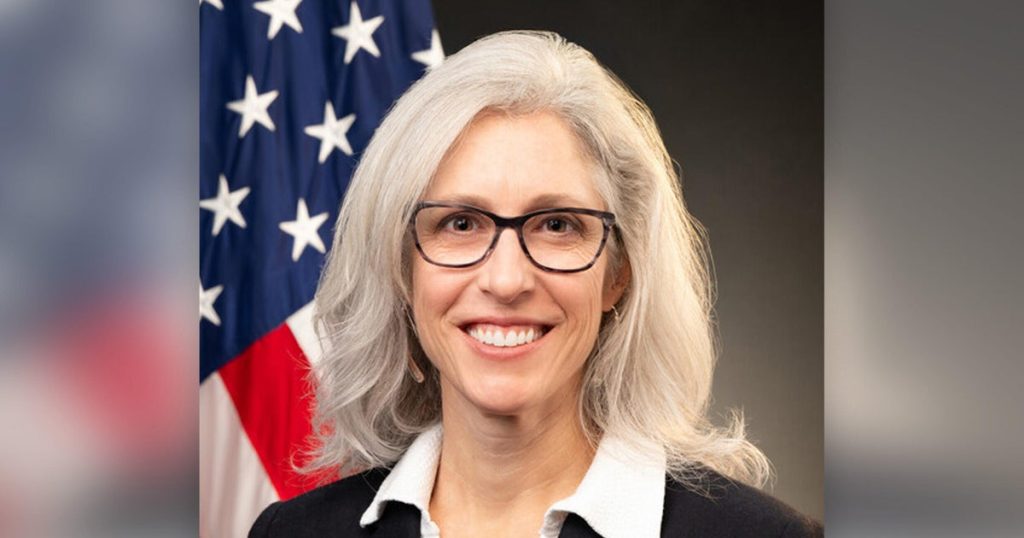In a significant move toward stabilizing leadership at the Centers for Disease Control and Prevention (CDC), President Trump has nominated Susan Monarez to take over as the permanent head of the agency. Monarez, who is currently serving in an acting capacity since January, replaces the previously nominated Dr. David Weldon, whose candidacy was withdrawn due to concerns about Senate confirmation. The president emphasized Monarez’s dedication to public service and the urgent need for renewed confidence in the CDC as the organization grapples with political issues and public health challenges.
| Article Subheadings |
|---|
| 1) Nomination Details and Background |
| 2) Qualifications of Susan Monarez |
| 3) The Path to Senate Confirmation |
| 4) Current Health Challenges Faced by the CDC |
| 5) Expectation for Reform in CDC Leadership |
Nomination Details and Background
President Trump announced the nomination of Susan Monarez to become the new director of the CDC on social media, highlighting her experience and dedication as a public servant and a mother. This decision follows the withdrawal of Dr. David Weldon’s nomination, who was seen as lacking support for Senate confirmation due to concerns about his alignment with present public health needs and political credibility. Monarez’s rise to the forefront comes as part of a broader strategy within the Trump administration to address the public’s wavering confidence in health agencies, particularly in light of the effects of the COVID-19 pandemic.
Qualifications of Susan Monarez
Prior to her current role as the acting head of the CDC, Susan Monarez served as the deputy director for the Advanced Research Projects Agency for Health. Her academic credentials include a Ph.D., making her an unconventional choice for CDC leadership, which is historically occupied by medical doctors. Critics and supporters alike note that her experience in health research and policy can provide a fresh perspective in leading the agency. Amid growing discontent towards existing CDC operations and public criticisms, Monarez’s background could be beneficial for fostering trust and effective governance at an agency experiencing significant challenges.
The Path to Senate Confirmation
Unlike her predecessors, if confirmed, Monarez will be the first CDC director to face a vote from the Senate following recent legislative changes. This new requirement, enacted in 2022, mandates that the leader of the CDC undergo a confirmation process, reflecting an important shift in how health leadership positions are filled. Monarez will need to navigate a politically charged environment, facing tough questions, especially concerning her role in some of the controversial decisions taken during her tenure as acting director, including policies on vaccination and agency transparency. Senators, particularly from the Republican side, expect clear statements regarding her leadership vision and approach towards reestablishing CDC’s credibility in the eyes of the public.
Current Health Challenges Faced by the CDC
The CDC is currently confronting multiple health crises, including an uptick in measles cases attributed to declining vaccination rates, particularly in vulnerable communities across states like Texas. Monarez’s concern over vaccine safety and public health responses, especially considering her perceptions of previous health directives, will likely be scrutinized. Agents from the Senate Health Committee have expressed a need for the CDC to provide more actionable plans to combat these outbreaks while also addressing the legacies of the COVID-19 pandemic response. The pressure of public opinion on vaccine efficacy and safety compounds the urgency for Monarez to lead with an informed and transparent strategy.
Expectation for Reform in CDC Leadership
Anticipation around Susan Monarez centers on her ability to foster reform within the CDC, an agency often criticized for its operational inefficiencies and perceived political biases in public health messaging. Senator Bill Cassidy has expressed optimism about potential reforms, calling for a thorough examination of the CDC’s policies and practices. Initiatives to revamp the agency include clarifying its stance on vaccination and public health messaging. Monarez has inherited a challenging environment where she must work not only to heal the agency’s reputation but also to implement strategies that can address the ongoing critique regarding its handling of health threats, navigating between evidence-based medicine and public sentiment.
| No. | Key Points |
|---|---|
| 1 | President Trump nominates Susan Monarez as permanent head of CDC amidst concerns about previous nominee. |
| 2 | Monarez has a Ph.D. and serves as acting director since January, marking her unconventional selection in CDC leadership. |
| 3 | Her confirmation will require Senate approval, marking the first time such a process is necessary since legislative changes in 2022. |
| 4 | The CDC faces health challenges like rising measles cases, increasing scrutiny on its public health directives. |
| 5 | Calls for reform center on rebuilding public trust in CDC while addressing vaccine safety issues and agency transparency. |
Summary
The nomination of Susan Monarez as the new head of the CDC represents a pivotal moment in public health leadership as the agency navigates major health challenges and a critical scrutiny of its practices. With Senate confirmation on the horizon, Monarez’s perspectives on vaccine safety, public health communication, and overall agency reforms will play a significant role in shaping the future direction of one of the nation’s foremost health institutions. This appointment not only aims to restore confidence in the CDC but also serves as a fundamental test of the health agency’s capability to address ongoing public health crises effectively.
Frequently Asked Questions
Question: Who is Susan Monarez?
Susan Monarez is the acting director of the CDC who has been nominated by President Trump to take over as the permanent director of the agency.
Question: What challenges does the CDC currently face?
The CDC is currently managing rising measles cases and scrutiny over its public health directives, particularly concerning vaccine safety and vaccine misinformation.
Question: How does the nomination process for CDC leadership differ now?
Recent legislative changes require the nominee for CDC director to undergo a Senate confirmation process, unlike previous appointments that did not require such a step.


